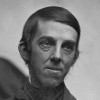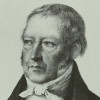“ The teaching of nature comes slowly; man's lessons are mostly premature. ”
Jean-Jacques Rousseau, Emile, or On Education (1762). copy citation
| Author | Jean-Jacques Rousseau |
|---|---|
| Source | Emile, or On Education |
| Topic | lesson |
| Date | 1762 |
| Language | English |
| Reference | |
| Note | Translated by Barbara Foxley |
| Weblink | http://www.gutenberg.org/cache/epub/5427/pg5427-images.html |
Context
“Everybody knows the differences which have been observed with regard to this between hot and cold countries, and every one sees that ardent temperaments mature earlier than others; but we may be mistaken as to the causes, and we may often attribute to physical causes what is really due to moral: this is one of the commonest errors in the philosophy of our times. The teaching of nature comes slowly; man's lessons are mostly premature. In the former case, the senses kindle the imagination, in the latter the imagination kindles the senses; it gives them a precocious activity which cannot fail to enervate the individual and, in the long run, the race.”
source



